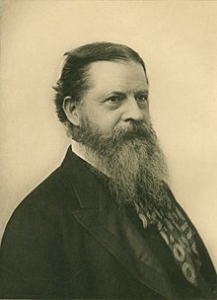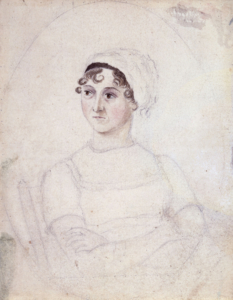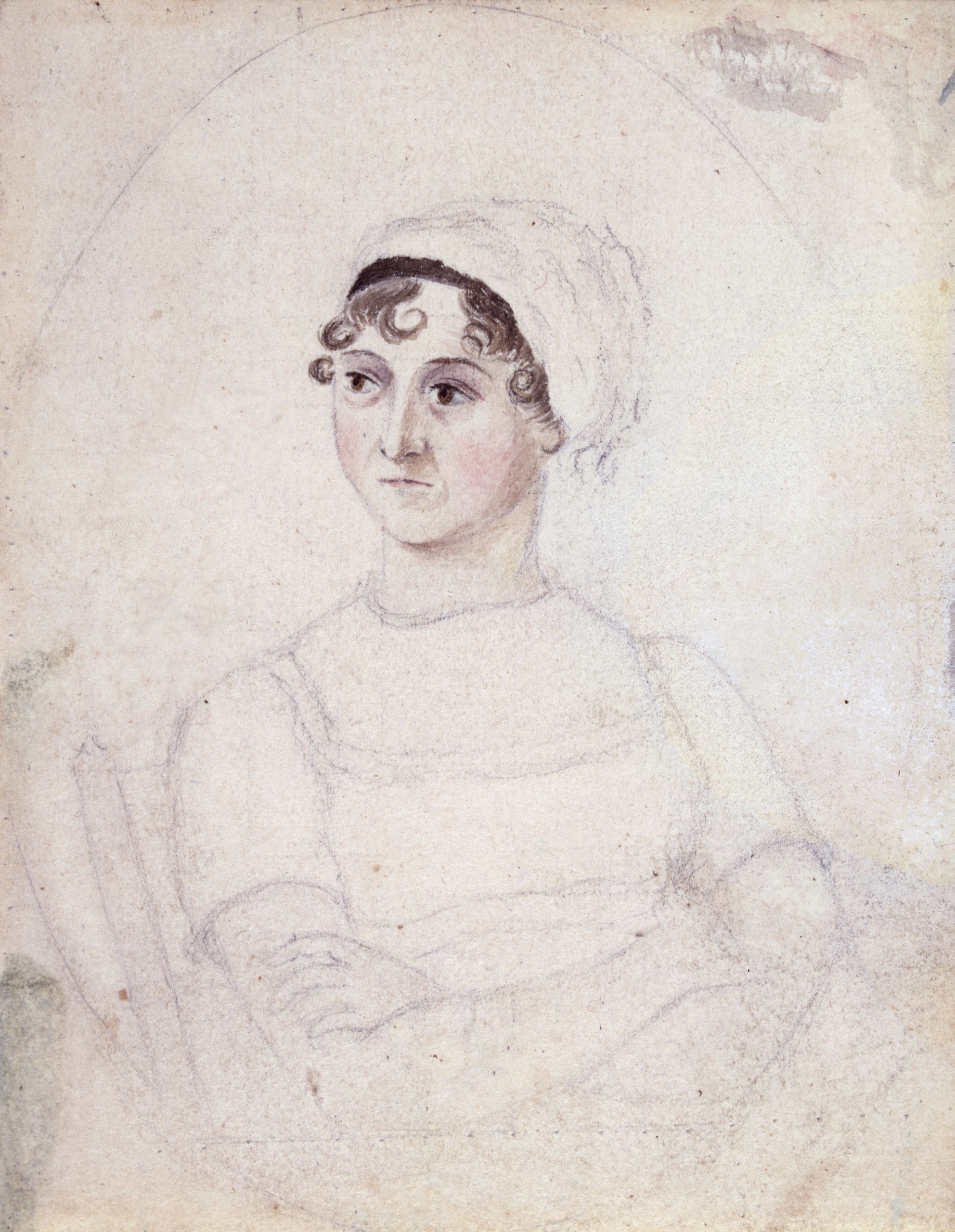Why Read Old Books?
Trumpalooza 2020 and DemFest are over, the actual campaign is beginning, and I am overwhelmed by the crazy and stupid. I’ve been asking myslef whether it makes sense to continue this project of trying to understand our current morass and what we should do about it. Are old books worth reading in a time of troubles like ours?
One aspect of our current morass is the unwillingness of so many people to rethink any belief they hold. This is an old problem. There is no reason to think we can’t find helpful answers in the works of our ancestors from all times and places. Did Confucius know less about human nature than Aristotle? Did Sophocles understand people less well than Jane Austen?

Charles Sanders Peirce
With these considerations in mind, here’s an extended quote from The Fixation of Belief by Charles Peirce, perhaps the earliest American Pragmatist, published in 1877.
If the settlement of opinion is the sole object of inquiry, and if belief is of the nature of a habit, why should we not attain the desired end, by taking as answer to a question any we may fancy, and constantly reiterating it to ourselves, dwelling on all which may conduce to that belief, and learning to turn with contempt and hatred from anything that might disturb it? This simple and direct method is really pursued by many men. I remember once being entreated not to read a certain newspaper lest it might change my opinion upon free-trade. “Lest I might be entrapped by its fallacies and misstatements,” was the form of expression. “You are not,” my friend said, “a special student of political economy. You might, therefore, easily be deceived by fallacious arguments upon the subject. You might, then, if you read this paper, be led to believe in protection. But you admit that free-trade is the true doctrine; and you do not wish to believe what is not true.” I have often known this system to be deliberately adopted.
Still oftener, the instinctive dislike of an undecided state of mind, exaggerated into a vague dread of doubt, makes men cling spasmodically to the views they already take. The man feels that, if he only holds to his belief without wavering, it will be entirely satisfactory. Nor can it be denied that a steady and immovable faith yields great peace of mind. It may, indeed, give rise to inconveniences, as if a man should resolutely continue to believe that fire would not burn him, or that he would be eternally damned if he received his ingestaITAL otherwise than through a stomach-pump. But then the man who adopts this method will not allow that its inconveniences are greater than its advantages. He will say, “I hold steadfastly to the truth, and the truth is always wholesome.”
And in many cases it may very well be that the pleasure he derives from his calm faith overbalances any inconveniences resulting from its deceptive character. Thus, if it be true that death is annihilation, then the man who believes that he will certainly go straight to heaven when he dies, provided he have fulfilled certain simple observances in this life, has a cheap pleasure which will not be followed by the least disappointment. A similar consideration seems to have weight with many persons in religious topics, for we frequently hear it said, “Oh, I could not believe so-and-so, because I should be wretched if I did.”
When an ostrich buries its head in the sand as danger approaches, it very likely takes the happiest course. It hides the danger, and then calmly says there is no danger; and, if it feels perfectly sure there is none, why should it raise its head to see? A man may go through life, systematically keeping out of view all that might cause a change in his opinions, and if he only succeeds — basing his method, as he does, on two fundamental psychological laws — I do not see what can be said against his doing so. It would be an egotistical impertinence to object that his procedure is irrational, for that only amounts to saying that his method of settling belief is not ours. He does not propose to himself to be rational, and, indeed, will often talk with scorn of man’s weak and illusive reason. So let him think as he pleases.
Peirce calls this the method of tenacity. Underlying it is Peirce’s view, which seems right to me, that when we begin to think for ourselves, when we become individuated, we already have a set of beliefs about the world. As we take in new data, we try to incorporate the new information into our existing set of ideas. Or maybe, as the ostrich, we don’t.
Obviously tenacity has some value. Our beliefs are hard-won assets, and we don’t want to give them up without a good reason. I think our first response to new data is often to apply the method of tenacity. The more dense our web of knowledge and belief, the harder it is to adjust, and the more tightly we cling to our existing beliefs.
There is a problem with the method of tenacity. Peirce says that it’s hard to hold to this method when you rub up against other human beings who don’t hold to the same beliefs.
But why exactly do people change their minds? Peirce says we like our beliefs to be internally consistent and coherent with what we observe. He thinks we are more likely to improve our outcomes if we do this. That makes sense in the context of science and academics, but not so much in day-to-day life. Does Jane Austen have something to add?

Jane Austen, portrait by her sister Casssandra.
In Pride and Prejudice, two of the characters, Darcy and Elizabeth, actually change in crucial ways and for the better. [1] Austen makes it clear that the characters change themselves using the method Peirce approves, careful observation of the external world and intentional incorporation of those observations into or in place of previously held views of the self.
The context is that the two have been jousting with words over several meetings. Darcy’s admiration for Elizabeth is growing, but she is only interested in the battle of wits, and is unaware of his growing infatuation. Then Darcy proposes marriage in a wonderful scene. Elizabeth is shocked, and insulted by the form of the proposal. They fight. Here’s the conclusion.
Elizabeth felt herself growing more angry every moment; yet she tried to the utmost to speak with composure when she said:
“You are mistaken, Mr. Darcy, if you suppose that the mode of your declaration affected me in any other way, than as it spared me the concern which I might have felt in refusing you, had you behaved in a more gentlemanlike manner.”
She saw him start at this, but he said nothing, and she continued:
“You could not have made the offer of your hand in any possible way that would have tempted me to accept it.”
Again his astonishment was obvious; and he looked at her with an expression of mingled incredulity and mortification. She went on:
“From the very beginning—from the first moment, I may almost say—of my acquaintance with you, your manners, impressing me with the fullest belief of your arrogance, your conceit, and your selfish disdain of the feelings of others, were such as to form the groundwork of disapprobation on which succeeding events have built so immovable a dislike; and I had not known you a month before I felt that you were the last man in the world whom I could ever be prevailed on to marry.”
Darcy is one of the wealthiest men in England, and as we see later is a man of taste and discrimination, versed in business and society. Elizabeth is a gentlewoman, but she has no future if she doesn’t marry. Rejecting Darcy is a very serious step.
The next morning Darcy hands her a letter explaining his actions in the two matters that formed the basis for her rejection. Elizabeth reads the letter, and considers carefully the new information against the beliefs she holds about the events. In each particular raised by the letter she sees that Darcy’s explanation offers a better, more coherent and more likely accurate view.
“How despicably I have acted!” she cried; “I, who have prided myself on my discernment! I, who have valued myself on my abilities! who have often disdained the generous candour of my sister, and gratified my vanity in useless or blameable mistrust! How humiliating is this discovery! Yet, how just a humiliation! Had I been in love, I could not have been more wretchedly blind! But vanity, not love, has been my folly. Pleased with the preference of one, and offended by the neglect of the other, on the very beginning of our acquaintance, I have courted prepossession and ignorance, and driven reason away, where either were concerned. Till this moment I never knew myself.”
Her self-reflection form the basis of her re-evaluation of Darcy as a person.
Darcy is deeply affected by Elizabeth’s rejection. He explains his feelings at the end of the book. This quote gives the flavor.
“I cannot be so easily reconciled to myself. The recollection of what I then said, of my conduct, my manners, my expressions during the whole of it, is now, and has been many months, inexpressibly painful to me. Your reproof, so well applied, I shall never forget: ‘had you behaved in a more gentlemanlike manner.’ Those were your words. You know not, you can scarcely conceive, how they have tortured me;—though it was some time, I confess, before I was reasonable enough to allow their justice.”
Again, we see that he has followed Peirce in re-examining his actions in Elizabeth’s company and in general. It leads him to reinterpret his his behavior, not just toward Elizabeth but in general. And then he recognizes he needs to change, and does so.
But why did they change? I think it’s because both of them have see themselves as intellectually honest in the way Perice recommends. That means facing the facts we perceive, not hiding from those that imperil our current beliefs and opinions. In Darcy’s case, there’s another obvious motivation. He likes and admires Elizabeth, much to his surprise. He admires her fine eyes and her light figure, but mostly he admires her quick wit and understanding. Even after she rejects him that admiration continues. He is certain that he was right to admire her, and that forces him to face himself and his actions squarely as she sees them.
This is also true for Elizabeth, if less obvious. “His attachment excited gratitude, his general character respect; but she could not approve him….” This motivates her to consider carefully his explanations and his observations. It also motivates her to change.
Over time they recognize the strengths and weaknesses in themselves and each other, and they each see that the other is a good match. I think Darcy recognizes that this new self-understanding will make hem a better person.
I was given good principles, but left to follow them in pride and conceit. Unfortunately an only son (for many years an only child), I was spoilt by my parents, who, though good themselves (my father, particularly, all that was benevolent and amiable), allowed, encouraged, almost taught me to be selfish and overbearing; to care for none beyond my own family circle; to think meanly of all the rest of the world; to wish at least to think meanly of their sense and worth compared with my own. Such I was, from eight to eight and twenty; and such I might still have been but for you, dearest, loveliest Elizabeth! What do I not owe you! You taught me a lesson, hard indeed at first, but most advantageous. By you, I was properly humbled. I came to you without a doubt of my reception. You showed me how insufficient were all my pretensions to please a woman worthy of being pleased.”
Elizabeth sees the value of Darcy:
She began now to comprehend that he was exactly the man who, in disposition and talents, would most suit her. His understanding and temper, though unlike her own, would have answered all her wishes. It was an union that must have been to the advantage of both; by her ease and liveliness, his mind might have been softened, his manners improved; and from his judgement, information, and knowledge of the world, she must have received benefit of greater importance.
There’s a lesson here….
=====
[1] If you haven’t read this book, or haven’t read it lately, I highly recommend it as part of a mental cleansing.


